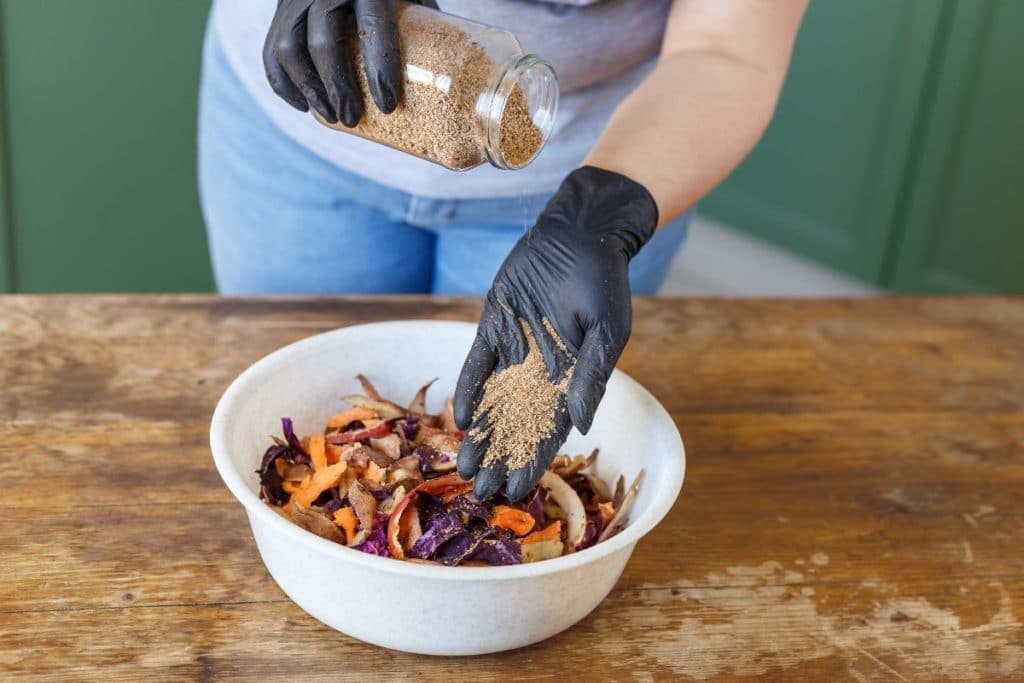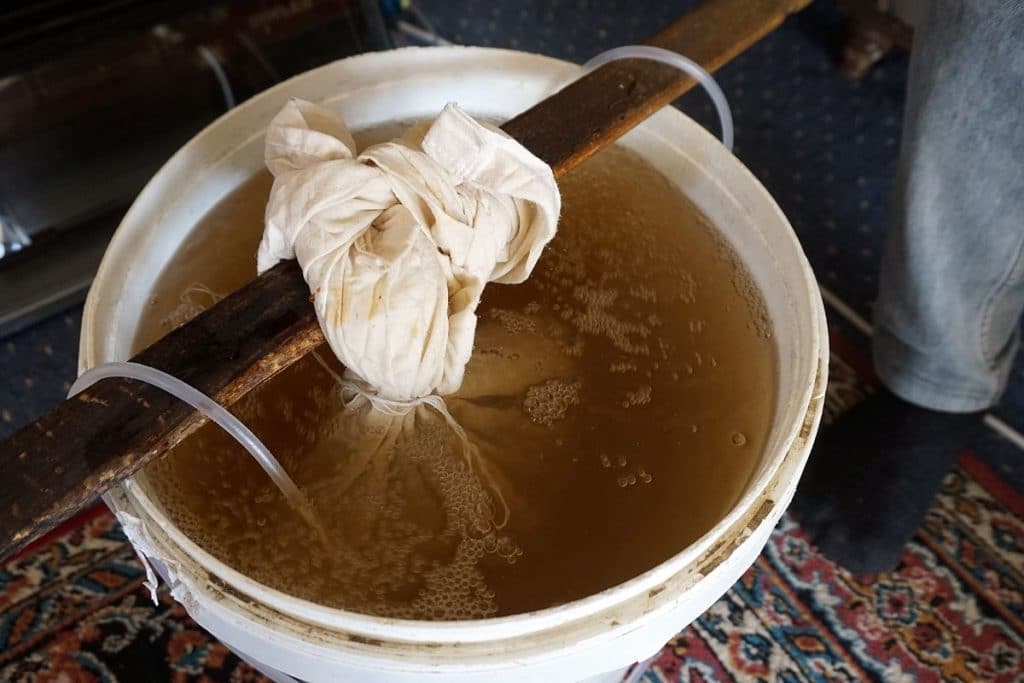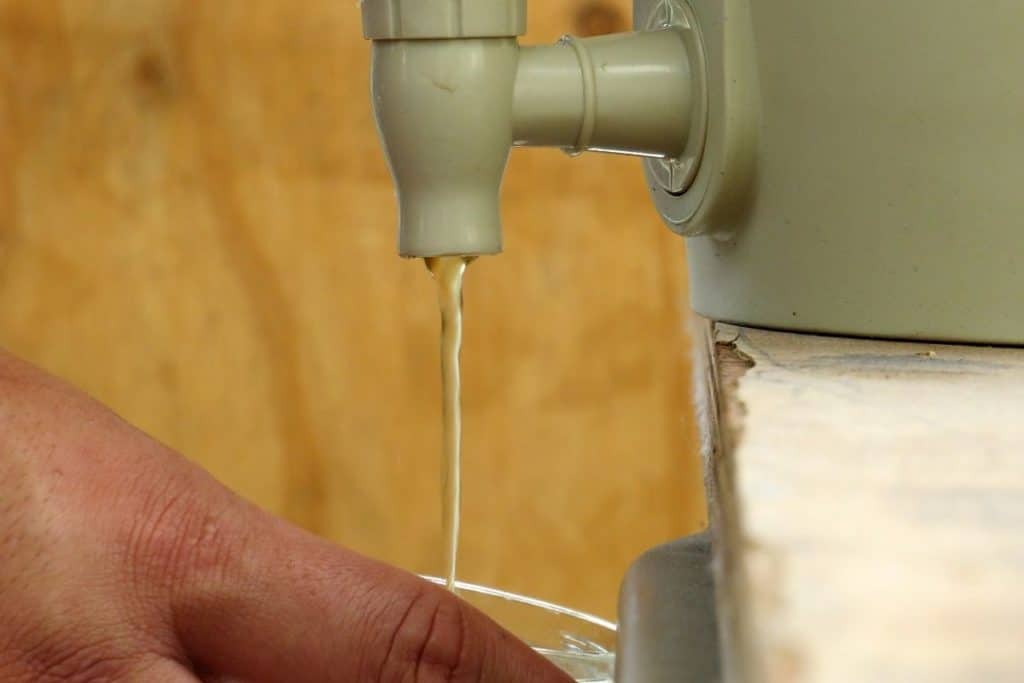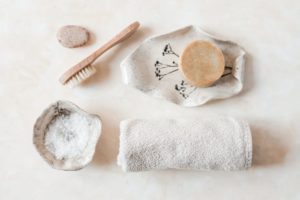It’s packed with nutrients, good for the environment, makes your plants healthier, and is easy to make yourself. What are we talking about? Compost tea! Want to know how to make compost tea for vegetables, fruit trees, houseplants, and more?
It’s fun and simple to brew up a batch in no time. Join us as we take a quick dive into the world of compost tea.
Advantages of Compost Tea over Solid Compost
First off, liquid compost is just easier to apply. Unlike solid compost, which you can only add to soil, compost tea goes deeper, nourishing soil, roots, and leaves. Other benefits of compost tea include:
- All-natural and eco-friendly
- “Builds” soil and improves water retention
- Dense with nutrients and beneficial organisms
- Creates zero harmful runoff
- Easier for plants to absorb
- Can be swapped for synthetic plant food
Now that we’ve covered the many advantages of liquid compost, let’s get started making some!
How to Make Compost Tea Without a Pump

There are a few ways to make compost tea if you’re not interested in fussing with a pump. We recommend the following:
1. Quick and Dirty
Soak a few cups of finished, high-quality compost overnight. This method is excellent if you don’t have much time, and you don’t mind if your compost tea is a little weaker. The overnight soak is an excellent way to gently boost the beneficial microbe content of the water you’re already feeding to your plants.
2. Stir It Up
Soak + frequently, vigorously stir for 1-3 days. So if you can get a weak compost tea by soaking compost overnight, wouldn’t it be better to keep going and make your compost tea stronger? To a point, yes. But if you’re planning to soak your compost longer than a day, you’ll need to make sure that you’re stirring very actively and frequently, keeping your tea as well-aerated as possible. Even with periodic stirring, you have to guard against veering into an anaerobic process, which will result in a vat of stinky, non-beneficial organisms (which are not good for your plants). If your compost tea gets at all smelly after a couple days, dump it out and start a fresh batch.
3. Bokashi
If you’re interested in learning how to make compost tea from kitchen waste, using a Bokashi kit is a simple method. You can find Bokashi kits online; they usually include a small bucket with a spigot and a dry microbe mix. Once you get your brewer going, you should be able to drain off compost tea as needed.
4. Sometimes, It’s Easier to…
Buy it! There are many great liquid compost products available for purchase, including jugs of pre-made compost tea, and even compost tea bags ready for brewing.
How to Make a Compost Tea Brewer

So those are the easiest ways to make compost tea. But what if you need to make a greater volume of higher-quality compost tea? In this case, an aerobic method — a.k.a. using a pump — is the best way to go. Even though it’s slightly more involved than the quick methods, it’s still pretty straightforward to make your own liquid compost using an inexpensive pump, a few supplies, and a little know-how.
Here’s what you’ll need:
- A 5-gallon bucket. You can certainly use something a little smaller or larger, but 5 gallons is the most frequently recommended size.
- Slightly less than 5 gallons of unchlorinated water. Rainwater is perfect if you have a rainwater barrel, but you can also use filtered water or regular old tap water. If you do use tap, let it sit out for at least 24 hours so that any chlorine in your water can evaporate.
- A pump, airstone, and airline tubing (or similar). You can buy pumps designed for compost tea, but aquarium supplies are generally cheaper and easier to find.
- About 2 tablespoons of “food” for your microorganisms to eat. The most commonly used ingredient (that you might already have in your cupboard) is unsulphured blackstrap molasses.
- 2 cups — 1 gallon of the highest quality compost you can get your hands on. The quality part is important: you’ll definitely get better results if your starter compost is full of all of the healthy microorganisms you’re trying to replicate in your finished compost tea. Good homemade compost, whether it’s from a pile in your yard, a compost tumbler, or a worm bin, is ideal. High quality store-bought compost also works in a pinch.
- Optional: a strainer. If you’re using a watering can with a nozzle or a spray bottle to apply your compost tea, you’ll probably want to strain it to prevent any clogging. (If you’re using larger quantities outdoors, there’s really no need.)
How to Make Compost Tea

- Set up your aeration system (you can find tons of detailed step-by-step instructions online).
- Pre-aerate your water for about 15 minutes — or an hour if there’s a chance there could be any residual chlorine.
- Add your finished compost and stir in 2 tablespoons of unsulphured molasses.
- Brew for at least 24 hours, but ideally for 3 days. Stir thoroughly at least twice a day.
- Strain your compost if desired. For best results, use your compost tea as soon as possible, but you can also use it for up to 2 days post-brewing. (Again, throw it out if it gets stinky.)
How to Apply Your Compost Tea
Now that you’ve learned how tomake your own compost tea, it’s time to apply it to your vegetables and other plants. You may want to consider a compost tea feeding scheduleof about every 2 weeks, but it’s up to you — it’s hard to use too much unless your tea is too strong or has gone bad.
There are three main ways to feed nutrient-rich compost tea to your plants:
- Foliar spray. Use a spray bottle or a garden pump sprayer to saturate the leaves of your plants.
- Soil drench. Add about as much as you would doing a deep watering during the coolest part of the day. Drenching the soil after you’ve transplanted a plant is incredibly beneficial.
- As an additive. Adding a small amount of compost tea to your plant’s regular water gives them a gentle boost of nutrients and microbes. This method works especially well for seedlings or other delicate plants.
Making compost tea for your vegetables and plants is a fun, free, super-sustainable pastime. Your plants might even thank you for the extra micro-nutrients by rewarding you with a growth spurt, or a generous harvest. Happy brewing!




